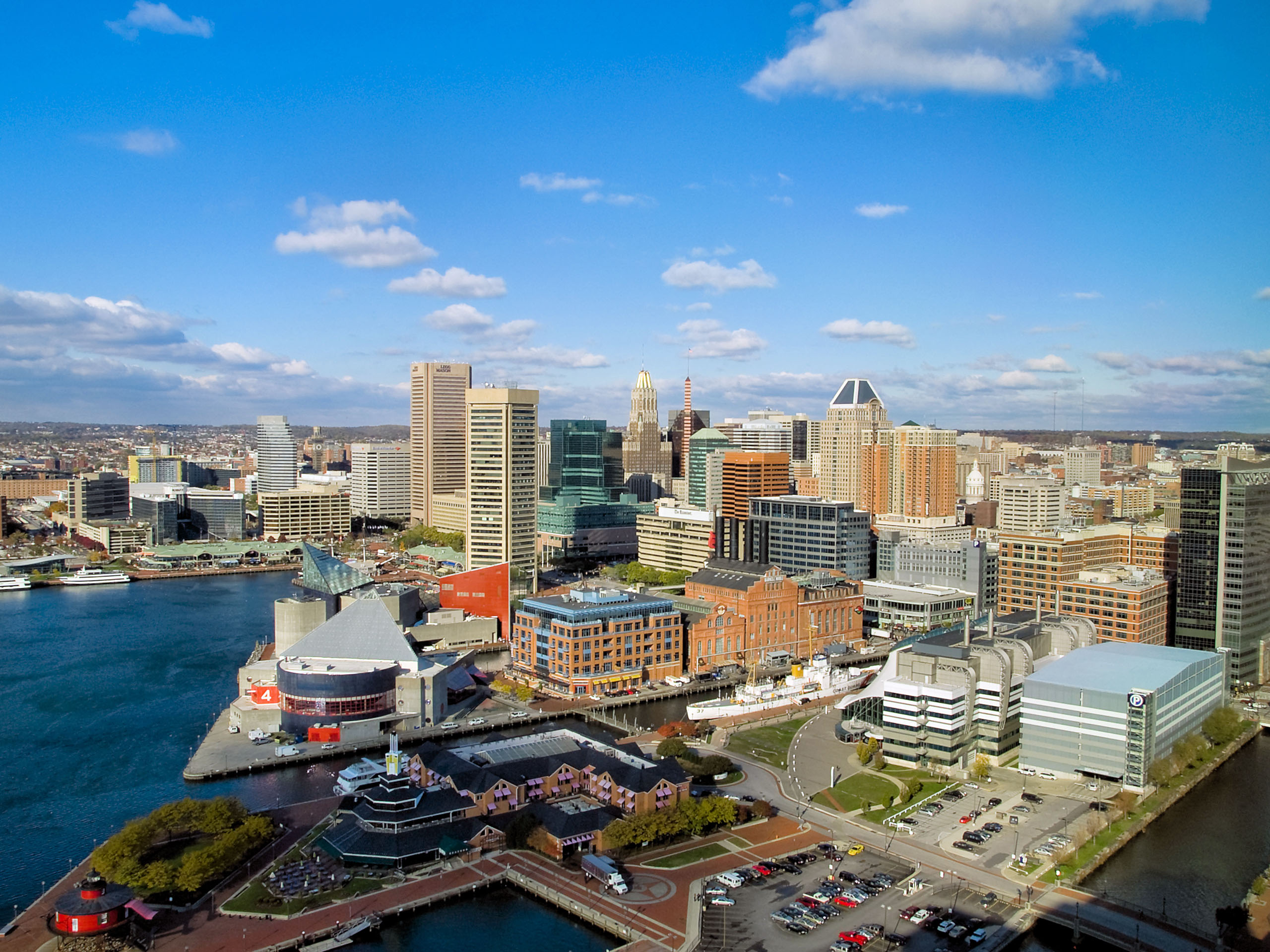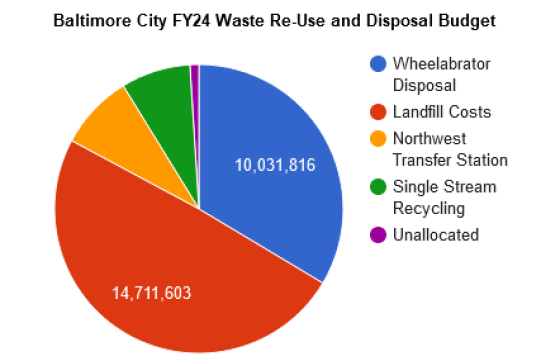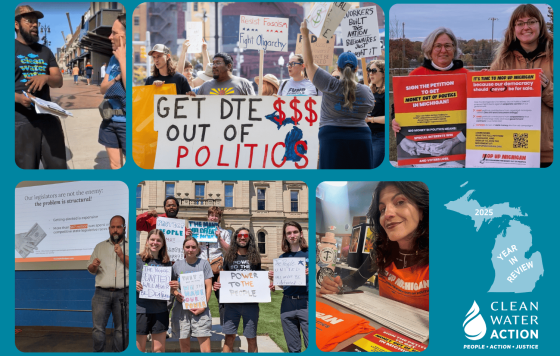
Tonight is the Baltimore City Council's Taxpayer's Night, the annual public hearing on the upcoming year's city budget. Check out our testimony below, and learn how you can participate here!
Thursday, May 25, 2023
Dear Baltimore City Council,
Clean Water Action, on behalf of our 5,000 members in Baltimore City, urges that deliberations about Baltimore City’s FY24 budget prioritize spending on solid waste and sewage infrastructure and management that will protect the environment and public health.
It is well established that Baltimore’s current at-scale options for solid waste management harm the environment and people’s health. The process of incinerating trash creates an especially dangerous set of compounds called dioxins, declared by the World Health Organization as a known human carcinogen; dioxins are also linked to diseases of the immune system, endocrine system, nervous system, and reproductive system. Air pollutants from waste incinerators have also been shown to increase the risk of preterm births, and lung and blood cancers. When compostable waste is landfilled it creates methane, a powerful driver of climate change. In contrast, application of the Zero Waste model, with source reduction, recycling, and composting, can transform the solid waste sector into a net negative source of greenhouse gas emissions, while reducing local air pollution and creating more jobs for local residents. Baltimore’s operating and capital budgets should reflect a robust commitment to developing the programming and infrastructure necessary to reduce, reuse, recycle, and compost our waste, and build the necessary transition away from BRESCO.
Baltimore’s sewage infrastructure likewise puts people in contact with other people’s untreated sewage far too often, causing them great expense and risking their health. Raw sewage carries dangerous bacteria and pathogens, and when a sewer backup is not professionally cleaned, lingering dampness can cause mold and mildew leading to long-term indoor air quality concerns. Sewage backs up from the public portion of the sewer system into people’s homes over a thousand times per year, but few people in that situation are eligible for the city’s assistance programs, and even fewer actually are able to get assistance, burdening residents with the cost of sewer backups originating in the City’s infrastructure. Baltimore’s budget should reflect a commitment aligned with the assistance program policy improvements recommended in Clean Water Action and Blue Water Baltimore’s recent joint report, as well as the long-term infrastructure and maintenance needed to prevent sewer backups from occurring.
As you consider the FY24 budget in the next few weeks, please consider the following questions:
1. Does the budget include adequate funding and accountability to assist Baltimore residents facing sewer backups originating in public infrastructure?
Currently, Baltimore offers two programs to assist residents facing sewage backups (the Expedited Reimbursement Program and the Sewage Onsite Support Program), but both are only available when the sewage backup was caused by wet weather. The majority of sewer backups into homes occur during dry weather, but households facing such a backup can currently receive no help from the City, even when the cause of the backup originated in the City’s infrastructure. Our report estimates that offering such assistance to each household facing a backup originating in City infrastructure would cost approximately $5.9 million, if every single qualifying household used the City’s assistance. (Without offering such assistance, these costs don’t go away - they are displaced onto households facing backups through no fault of their own.)
The budget currently does not include any Performance Measures regarding sewer backups. In fact, there are no Performance Measures given at all in Service 670: Administration - Water and Wastewater (pages 285-287), which also includes 011: Equity and Environmental Justice and 013: Emergency Response and Preparedness.
2. Does the budget include adequate funding and accountability to reduce the number of sewer backups?
Service 673: Wastewater Management (pages 295-298) has budgeted a total of $13 million for 006 Maintenance and Repair of Sanitary Systems and 031 Preventative Maintenance - Sanitary System. This is less than the nearly $16 million that was spent on these two items combined in FY22. Adequate preventative maintenance of the public sewer system is key for preventing sewer backups caused by conditions in the public sewer system. A larger commitment to preventative maintenance may reduce the number of sewer backups into people’s homes.
Although the number of sewer backups in homes with causes originating in public infrastructure does not appear as a Performance Measure in the budget, the number of dry-weather overflows outdoors does appear as a Performance Measure in Service 673. It is noteworthy that the actual number of sewer backups increased between FY19 and FY22. The FY24 target is set to 223 overflows, higher than the actual number of overflows in all but one of those years. Likewise, Service 675: Engineering and Construction Management - Water and Wastewater (pages 303-306) includes Linear Feet of wastewater collection system rehabilitated/replaced as a Performance Measure; that number decreased between FY19 and FY22, and the FY24 target is set lower than the actual number of linear feet replaced in any of those years, less than 20% of the FY22 target.
3. Does the budget’s spending on waste reuse and disposal allow Baltimore to build toward our Zero Waste commitments?
Service 664: Waste Re-Use and Disposal (pages 283-285) allocates 49% of its budget to landfill operation, closure, and development; 36% of its budget to BRESCO; and only 8% to Single Stream Recycling. Baltimore must budget more for our recycling program in order to meet our recycling goals.
4. Are we planning for the long-term capital spending necessary to develop solid waste infrastructure that will not harm public health and the environment?
In DPW’s Agency Request for the Capital Improvement Program, the agency requested funds to develop compost facilities beginning in FY26 and funds to develop new recycling facilities starting in FY28. However, the Planning Commission only approved funding to develop compost facilities beginning in FY28, and did not approve funding for developing recycling facilities at all. The Planning Commission did incorporate FY24 funding for compost facilities, reflecting a $4 million grant from EPA and $1 million City match.
Capital funding for developing compost infrastructure and improving our recycling infrastructure must not be considered discretionary, or something that can only be allocated when external funding can be secured. In order to fulfill Mayor Scott’s promises to make the current contract with BRESCO the City’s last, these items must be considered just as essential as the $57 million in capital funds that have been allocated to the Quarantine Road Landfill expansion.
Thank you,
Jennifer Kunze
Maryland Program Coordinator
Clean Water Action



